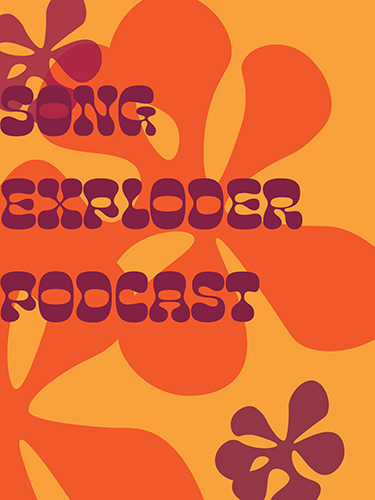Song Exploder: breaking down music and enhancing the listening experience for audiences everywhere

In 2014, Hrishikesh Hirway, a musician from the band The One AM Radio who composed soundtracks for the 2015 movie “Dope” and the Netflix series “Everything Sucks,” created the podcast Song Exploder. Each episode is around 20 minutes, which makes it the perfect length to enjoy during a quick workout, chores around the house, or while in the car on the way to the beach.
The podcast breaks down the process of song creation through interviews with artists – with a wide variety of musicians being included such as rappers like Meek Mill, bands like Death Cab for Cutie and even younger artists like Billie Eilish. Hirway has even nabbed some bigger names such as U2, Metallica, Solange, Gorillaz, The Roots, Fleetwood Mac, Phoebe Bridgers, Vampire Weekend, and even FKA twigs.
Since 2015, there have been 200 episodes of the Song Exploder podcast, each with a different artist talking about a different song. The artist being interviewed isn’t always asked about one of their most well-known songs, either, which allows the listener to hear about and be introduced to new music. That is one of the more unique elements of the show.
“Using the isolated, individual tracks from a recording, Hrishikesh asks artists to delve into the specific decisions that went into creating their work. Hrishikesh edits the interviews, removing his side of the conversation and condensing the story to be tightly focused on how the artists brought their songs to life,” reads the description of the podcast on their website.
Two of my favorite episodes are when Lorde talks about “Sober,” a song off of her 2017 album “Melodrama” and Justin Hurwitz talking about the soundtrack for the 2016 movie “La La Land.” I think it is so interesting to listen to my favorite artists really dive in and spill about the process of creation for a song you have listened to hundreds of times.
In 2020, Song Exploder continued its interviews and breakdowns of songs on Netflix. They now have a television show with two volumes, with four episodes each, available on the streaming service.
The Netflix episodes, similarly to the podcast, are around 25 minutes long. A few of the guests have already been featured on the podcast but they break down a different song of theirs for the show. Some of the artists interviewed for Netflix episodes are Dua Lipa, The Killers, Lin Manuel Miranda, and Alicia Keys
The visual aspect of the Netflix project really add to the original concept of Song Exploder. Obviously, you still get the overall breakdown of the song and the input from the artist, but there is more depth to it.
For example, in the episode where The Killers went over their song “When You Were Young,” different animations and lyrics appeared on the screen while performing. It was also enjoyable to see clips of the band performing their song from years before.
Along with the artist, co-writers and producers are interviewed for Song Exploder as well. It adds a lot to the music when you get to hear and see the other people that worked on the song too.
In Dua Lipa’s episode, viewers got a deeper glimpse into the song process with Clarence Coffee Jr and Chelcee Grimes, her creative team. It augments the information on how certain things were added to the song, such as a sample of “My Woman” by Al Bowlly or certain lyrics like “But goddamn, you got me in love again.” The visuals and actually seeing people interact on screen allow the audience to feel like they are in the studio recording the song too.
My favorite two Netflix episodes of Song Exploder are R.E.M. going over “Losing My Religion” and Dua Lipa talking about “Love Again.” Learning about a classic song that everyone knows and one that I had maybe only heard in passing a few times parallels two different yet enjoyable experiences. The people the shows feature, the graphics and the overall composition of the show make it so enthralling. It is hard to look away.
Both the podcast and Netflix episodes end with the entirety of the songs being talked about. There is a sort of magic in the air when hearing the song fully once again. With the amount it is discussed, broken down, fragmented to hear specific parts, and the new understanding the listener has of the steps that got them there, it is so satisfying to hear it all come together in the end.

